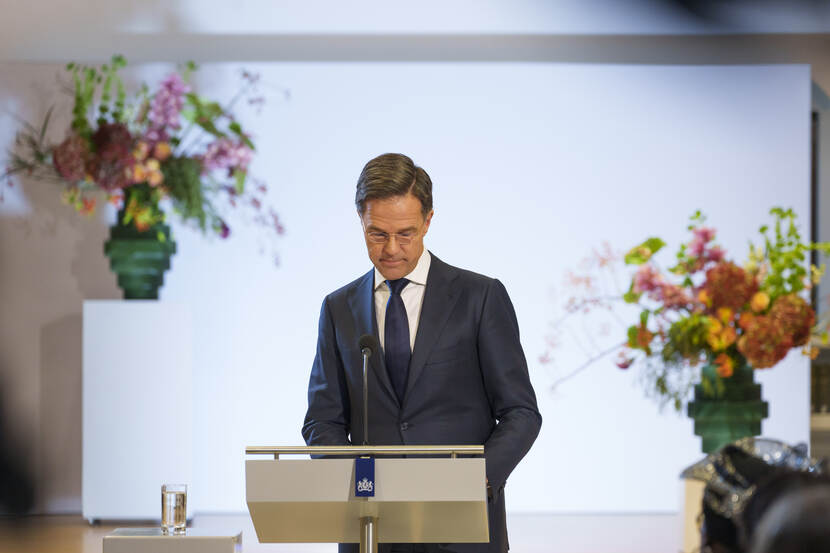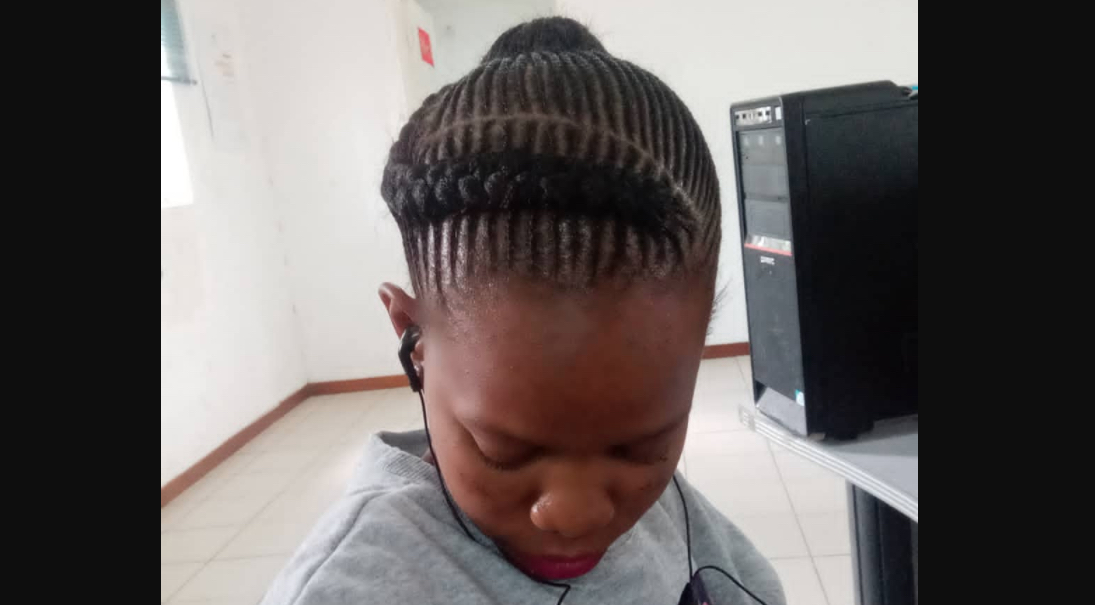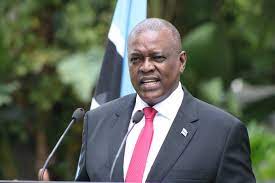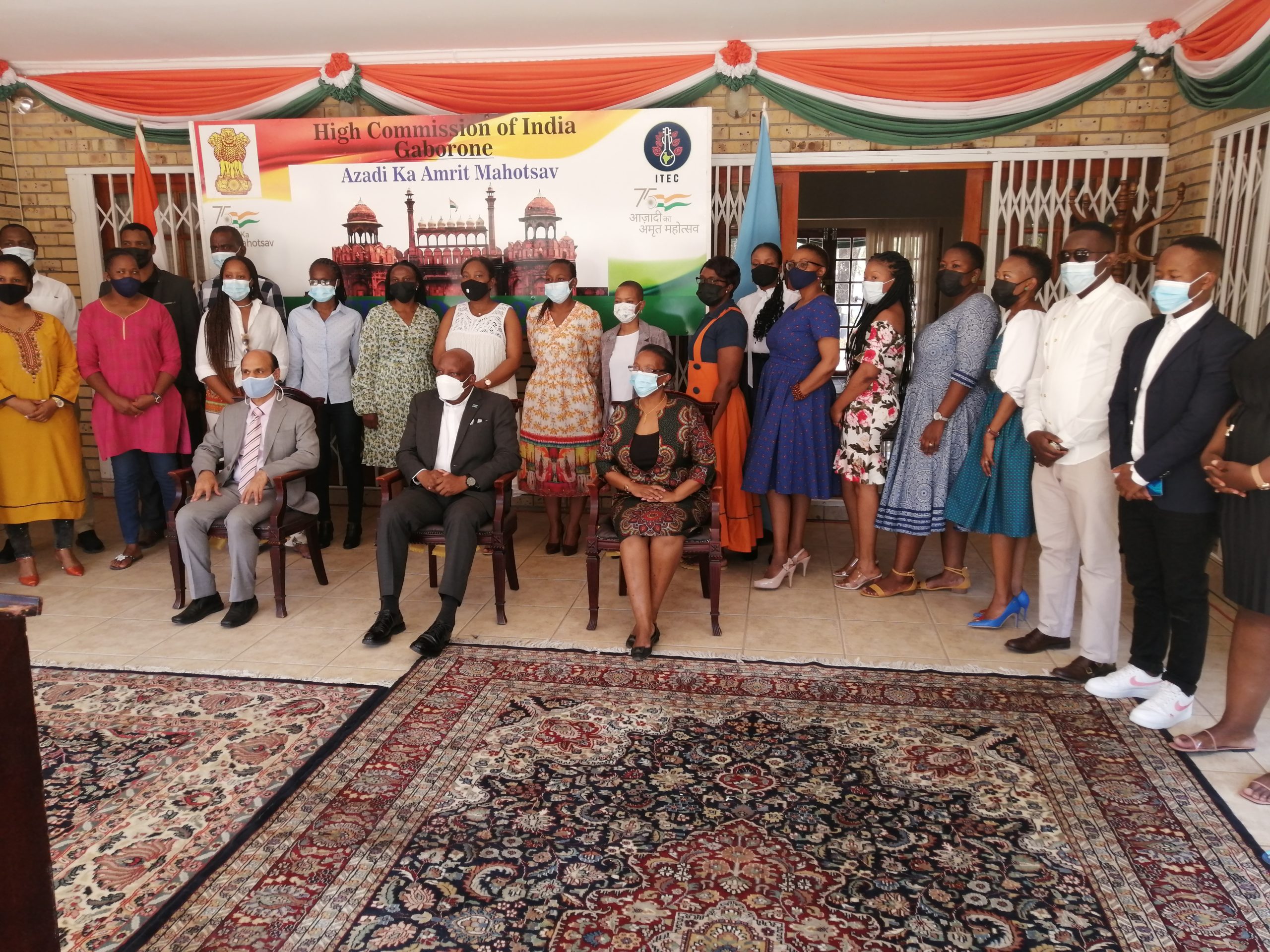
Den Haag, 19-12-2022 Toespraak minister-president Rutte naar aanleiding van kabinetsreactie slavernijverleden. Foto Martijn Beekman / RVD
by Mark Rutte
The Pan Afrikanist has chosen to run the apology offered by the Prime Minister of The Netherlands, Mark Rutte on the 19th of December 2022, for the past actions of the Dutch State to enslaved people in the past, everywhere in the world, who suffered as a consequence of those actions, as well as to their daughters and sons, and to all their descendants, up to the present day. The speech was delivered at the National Archives in The Hague in the presence of representatives of organisations that have pressed for acknowledgement of the effects of slavery.

Here in the National Archives, history speaks to us through millions of documents.
And though we can’t hear the unwritten voices from the past, the story that emerges from all those documents is not always pretty.
Often it is ugly, painful, and even downright shameful.
That is certainly the case with the role of the Netherlands in the history of slavery.
We who live in today’s world must acknowledge the evils of slavery in the clearest possible terms, and condemn it as a crime against humanity.
As a criminal system which caused untold numbers of people untold suffering.
Suffering that continues in the lives of people today.
And we in the Netherlands must confront our part in that history.
It’s therefore good that we are gathered here today at the National Archives.
This is the home of our national memory.
So this is the place to examine our national conscience.
Here, you can’t get around the historical facts.
By 1814, more than 600,000 enslaved African women, men and children had been shipped to the American continent, in deplorable conditions, by Dutch slave traders.
Most were taken to Suriname, but others were sent to Curaçao, St Eustatius and other locations.
They were wrenched from their families and stripped of their humanity.
They were transported – and treated – like cattle.
Often under the governmental authority of the Dutch West India Company.
In Asia, between 660,000 and over one million people – we don’t even know exactly how many – were traded within the areas under the authority of the Dutch East India Company.
The numbers are unimaginable.
The human suffering behind them, even more unimaginable.
Countless stories have been passed down, and witness testimonies given, proving that there was no limit to the arbitrary cruelty of the slave system.
And thus no limit to the injustice and the sheer terror.
We need only open Anton de Kom’s book, We Slaves of Suriname, to read about the most horrific treatment and punishment.
We read of people being flogged and tortured to death.
Of people whose limbs were hacked off or whose faces were branded with hot irons.
Each person’s fate more gruesome than the last.
Injustice upon injustice with every turn of the page.
And just as Anton de Kom described the horrors of Suriname, other horrors unfolded elsewhere, under the same Dutch governmental authority.
We can read about it.
We can know about it.
And still the awful fate of the people who were enslaved is barely conceivable.
So let us consider the hard facts contained in the archives.
Take, for example, the enormous administrative system set up around the time that slavery was abolished, in 1863.
We can still study those records here today.
Page after page lists the names – and a few other personal details – of enslaved people, registered by plantation and owner.
The records are dry and concise, businesslike and systematic, which makes them all the more shocking.
Because they underline the absurdity of a system in which one human being makes a being commodity of another.
A system so inhuman and unjust, that in 1863 it was not the enslaved people who received financial compensation from the State, but the slave owners.
And yet it could be even more cruel, even more unfair, because everyone who nominally gained their freedom in Suriname in 1863 was forced to keep working under the supervision of the State for another 10 years.
For many this meant another 10 years of living an unfree life, a life of subjugation.
Until 1873.
Which is 150 years ago next year.
That history concerns us all.
A complex history, in which different years and different events carry significance in different places.
Not just 1863 and 1873.
But 1860 too, for instance, the year in which slavery in the Dutch East Indies was formally abolished.
1814, when the Netherlands abolished its transatlantic slave trade.
1848, the de facto end of slavery on St Maarten.
Or 1795, when Tula led a revolt on Curaçao that is still commemorated every year.
So many moments, so many stories, so much history.
In recent years, that history has gained more attention – in exhibitions, in publications and in the public debate.
Social awareness is growing.
And that is leading to a change in the way we think.
This is good, and appropriate, and necessary, for the silence has gone on too long.
I have experienced that change in thinking personally – I want to be open about that.
For a long time I thought that we could not easily take meaningful responsibility for something that happened so long ago.
Something that none of us experienced first-hand.
For a long time I thought that the Netherlands’ role in slavery was a thing of the past, something we had put behind us.
But I was wrong.
Centuries of oppression and exploitation still have an effect to this very day.
In racist stereotypes.
In discriminatory patterns of exclusion.
In social inequality.
And to break those patterns, we also have to face up to the past, openly and honestly.
A past that we share with other countries and that has forged a special connection between our societies for all time.
It is true that no one alive now is personally to blame for slavery.
But it is also true that the Dutch State, in all its manifestations through history, bears responsibility for the terrible suffering inflicted on enslaved people and their descendants.
So we cannot ignore the effects of the past on the present.
The report entitled Chains of the Past by the Slavery History Dialogue Group is playing an important role in the process of growing awareness that many of us are experiencing.
The report was published on 1 July 2021 and it contains a number of hard-hitting conclusions and clear recommendations.
The three key words are: acknowledgement, apology, recovery.
Today we are sending the official government response to this report to the Dutch House of Representatives.
In that response we embrace the analysis and conclusions of the Dialogue Group.
In the intervening year and a half, the government has spoken about the history of slavery, in various ways, in various places and with various people and groups.
I myself was in Suriname last September, where I learned how deeply history still affects people’s daily lives, including in a spiritual sense.
I also learned how experiences, memories and feelings can be different for each group and each individual.
It makes a difference whether your forebears were stolen from Africa or were members of the indigenous population.
It makes a difference in which country or region they lived their lives.
And it also makes a difference in which period they lived.
Those historical, geographical and cultural differences between population groups and individuals matter, to this very day.
And this means that making general statements about the history of slavery is a very delicate matter.
How do you do justice to all those differences?
What is the best moment?
How do you do justice to all the spiritual symbols and rituals that are so very important to certain cultures?
And how can you encapsulate so much injustice, so much pain, so many atrocities, in mere words?
Any attempt to do so will always fall short, and will give rise to new questions and discussions.
With all the emotions that entails.
With all the tensions it creates.
We know there isn’t one right moment for everyone; there are no right words for everyone, nor one right place for everyone.
And I acknowledge that the build-up to this day could have been better.
But we mustn’t let that be a reason to simply do nothing.
We must take steps forward together.
We must progress together.
So please, let’s have that conversation about the Netherlands’ role in the history of slavery, even if it is difficult.
That conversation begins with acknowledgement.
Acknowledgement of the terrible suffering inflicted on generations of enslaved people.
Acknowledgement and rehabilitation of all those who put up resistance, like the courageous Maroons of Suriname.
Today, I respectfully speak the names of Tula on Curaçao, Jolicoeur, Boni and Baron in Suriname and One-Tété Lohkay on St Maarten.
And we remember all the nameless women and men who courageously strived for freedom throughout the centuries, and often suffered the most horrific punishments.
And of course acknowledgement of historical responsibility, together with the appropriate words.
These words.
For centuries, the Dutch State and its representatives facilitated, stimulated, preserved and profited from slavery.
For centuries, in the name of the Dutch State, human beings were made into commodities, exploited and abused.
For centuries, under Dutch state authority, human dignity was violated in the most horrific way possible.
And successive Dutch governments after 1863 failed to adequately see and acknowledge that our slavery past continued to have negative effects and still does.
For that I offer the apologies of the Dutch government.
Today I apologise.
Awe mi ta pidi diskulpa.
Tide mi wani taki pardon.
Today, on behalf of the Dutch government, I apologise for the past actions of the Dutch State: to enslaved people in the past, everywhere in the world, who suffered as a consequence of those actions, as well as to their daughters and sons, and to all their descendants, up to the present day.
We are doing this, not to wipe the slate clean.
Not to close the book on the past and leave it behind us.
We are doing this – and doing it now – so that, standing on the cusp of an important commemorative year, we can find a way forward together.
We not only share a past; we share a future too.
So with this apology we are writing not a full stop, but a comma.
The dialogue on the history of slavery should be held as broadly as possible, not only in the Netherlands, but also, and especially, in the places where it happened, with everyone who is involved or feels involved.
That’s why the apology I just offered will be echoed today in seven other places in the world; places where the pain and consequences of slavery are felt the most and are the most visible, to this very day.
It will be echoed in the words spoken by seven representatives of the Dutch government.
In Suriname.
On Curaçao.
On St Maarten.
On Aruba.
On Bonaire.
On Saba.
And on St Eustatius.
“We are doing this – and doing it now – so that, standing on the cusp of an important commemorative year, we can find a way forward together. We not only share a past; we share a future too. So with this apology we are writing not a full stop, but a comma.”
In consultation with all the groups and individuals from all the countries with which we share this history, the government wants to work more intensively to enhance knowledge of the history of slavery, thus ensuring more awareness, acknowledgement and understanding.
This process will take time, and we can only do this work together.
On the road to that important, symbolic date of 1 July 2023.
And then throughout the year of commemoration.
And in the years that follow.
The government response to the report by the Slavery History Dialogue Group discusses this extensively.
It is vital that the steps we take now are truly taken together.
By talking and listening to each other, and doing so with just one purpose: doing justice to the past and healing in the present.
A comma, not a full stop.
Together with Suriname, the Caribbean parts of the Kingdom and all the descendants in the Netherlands, we are working to make cultural heritage more visible, to foster awareness through education and to encourage academic historic research.
During the year of commemoration, all facets of the history of slavery and its effects up to the present day will be brought to light.
The King personally feels very engaged with this subject and will be present at the commemoration and celebration in Amsterdam on 1 July.
And we are looking ahead, beyond 2023.
An independent and broadly composed commemoration committee will consider the best way to respectfully commemorate the past as collectively as possible in the future.
We will also set up a fund for social initiatives throughout the Kingdom and in Suriname, so that the impact of the history of slavery is given the visibility, attention and action that is needed.
The healing process must start now, and we will write the programme for that process together.
Ladies and gentlemen,
The book of our shared history has many pages that fill us – as people of the 21st century – with dismay and horror.
And with deep shame.
Those pages cannot be erased with an apology, nor should they be.
We cannot change the past, but we can face up to it.
What the government fervently hopes, and what I personally fervently hope, is that this moment, this day, will help us – throughout the Kingdom and together with Suriname and other countries – to fill the empty pages that lie ahead with dialogue, acknowledgement and healing.
Thank you.









